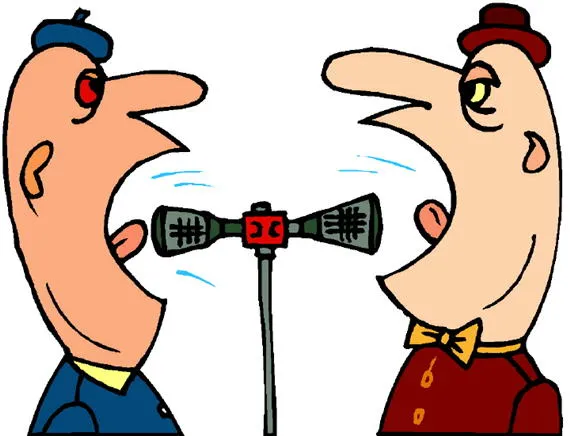Table of Contents
We accused Justice Antonin Scalia of being a homophobe after his dissent in Obergefell vs. Hodges without even taking the time to understand his decision. We responded to Republicans’ wariness of accepting Syrian immigrants by condemning their alleged racism without understanding how the Obama administration’s failures contributed to such an exodus in the first place. We pledged support for the Black Lives Matter movement online while often refusing to involve ourselves in the protests happening in our communities.
The political involvement of our generation is becoming increasingly devoid of substance.
Gay rights, the Syrian refugee crisis, and race relations are undoubtedly important. In fact, they are crucial issues that our nation must address. Yet the disturbingly reductionist approach we take in responding to such problems reflects a troubling trend that is taking root amongst millennials: a tendency to morally simplify complex political issues. We “virtue signal,” expressing viewpoints that are trending in our communities to fulfill our own narcissistic desires for acceptance.
Fueled by the rise of social media, engaging in the nuances of policy is sacrificed in the name of moral clarity as we jump to self-righteous conclusions to satisfy an online audience. Dialogue becomes obsolete, preventing us from appreciating the complexity of today’s thorniest issues and from being able to generate solutions to society’s most pressing problems.
The crises that are facing our nation are profound: health care costs are rising at unprecedented levels, educational performance for the poor and for people of color are spectacularly low, and the global security environment is at its most unstable since the end of the Cold War.
We tend not to focus on these topics, however. Despite being engulfed in one of the most contentious presidential elections in modern history, we do not even know the stances of our candidates on most of these subjects. Why? Because understanding them would require us to do more than watch a 30-second Buzzfeed video clip showcasing Trump’s racist tirades towards illegal immigrants. They require us to invest time reading substantive articles, understanding complex concepts that can’t be boiled down to an “ism” or “phobia.” And, of course, because they don’t make for good social media posts. A lengthy Facebook rant on the importance of investing in preventative medicine wouldn’t get many likes, and it would be downright impossible to explain with Twitter’s 140 character word limit.
Instead, we jump on every slip of the tongue produced by our candidates,.
In an age defined by the rise of social justice warriors, calling out the racism and sexism of both Trump and Clinton is a convenient way to bandwagon onto the trending, progressive movements of our generation. Though it is undoubtedly important to hold our nominees accountable for their words, it seems that many engage in such moral condemnation solely for the purpose of advancing their personal reputation. Social justice warriors are the ultimate armchair activists, a far cry from the grassroots organizers and protesters that are at the forefront of advancing equality. Instead, they engage in the worst forms of political activism, where the standard for effecting change is lowered to brief affirmations of solidarity that usually don’t amount to any tangible results.
Even worse, such moral righteousness prevents us from engaging deeply with the problems at hand, revealing a fundamental contradiction amongst those in our generation: though we claim to be moral relativists when interpreting societies foreign to our own, we do not hesitate to shut down the dissenting opinions of those within our own communities.
Responses to 2016 presidential election also encapsulate this attitude perfectly . Fueled by the desire to “virtue signal” in our online communities, we immediately label all Trump supporters as bigots undeserving of our attention. In fact, I have seen many of my peers demand that all Trump supporters unfriend them immediately, refusing to see these individuals as anything more than racists and sexists. For some, of course, Trump’s bigotry may constitute a red line. Others, however, draw a red line with Clinton’s support of abortion, which they view as mass killing of fetuses. For such voters, though they may find Trump’s chauvinism to be abhorrent, the moral imperative of preserving life takes priority.
Even more importantly, support for a political candidate may not be the result of automatic “decision rules,” but rather of a multiplicity of factors. This explains why Trump is may be polling as high as 32% amongst Hispanics, as many Latinos are willing to tolerate Trump’s insensitivity in the hopes that his business expertise will improve economic conditions and that his harsh stance on illegal immigration will better help them get jobs and receive social services. But such nuance has no place in a culture dominated by social media, where the rush towards passioned extremes is what generates the greatest following. For many in our generation, Trump’s bigotry and Clinton’s progressive rhetoric are all that matter: it’s enough for a catchy Tweet after a debate and the approval of the overwhelmingly liberal community.
Virtue signaling is easy: it does not require us to be educated about policy, only that we distill complex moral and social problems into a memorable hashtag or Facebook post. We become accepted by our communities, receiving the external validation we so often seek on social media.
Nonetheless, it is our responsibility to deviate from such a culture and engage in the harder task of understanding the nuances and moral complexity of current issues. We must challenge ourselves to look past the headliners of our time and expand our capacity to comprehend the unfamiliar. Achieving such a mindset is crucial, as it is only then that we will achieve the true diversity on which Stanford prides itself, both in representation and in thought.





